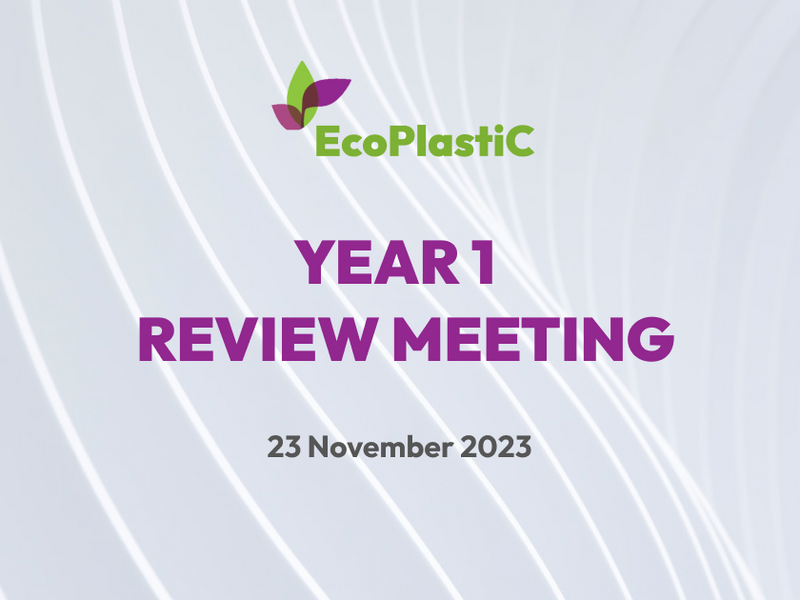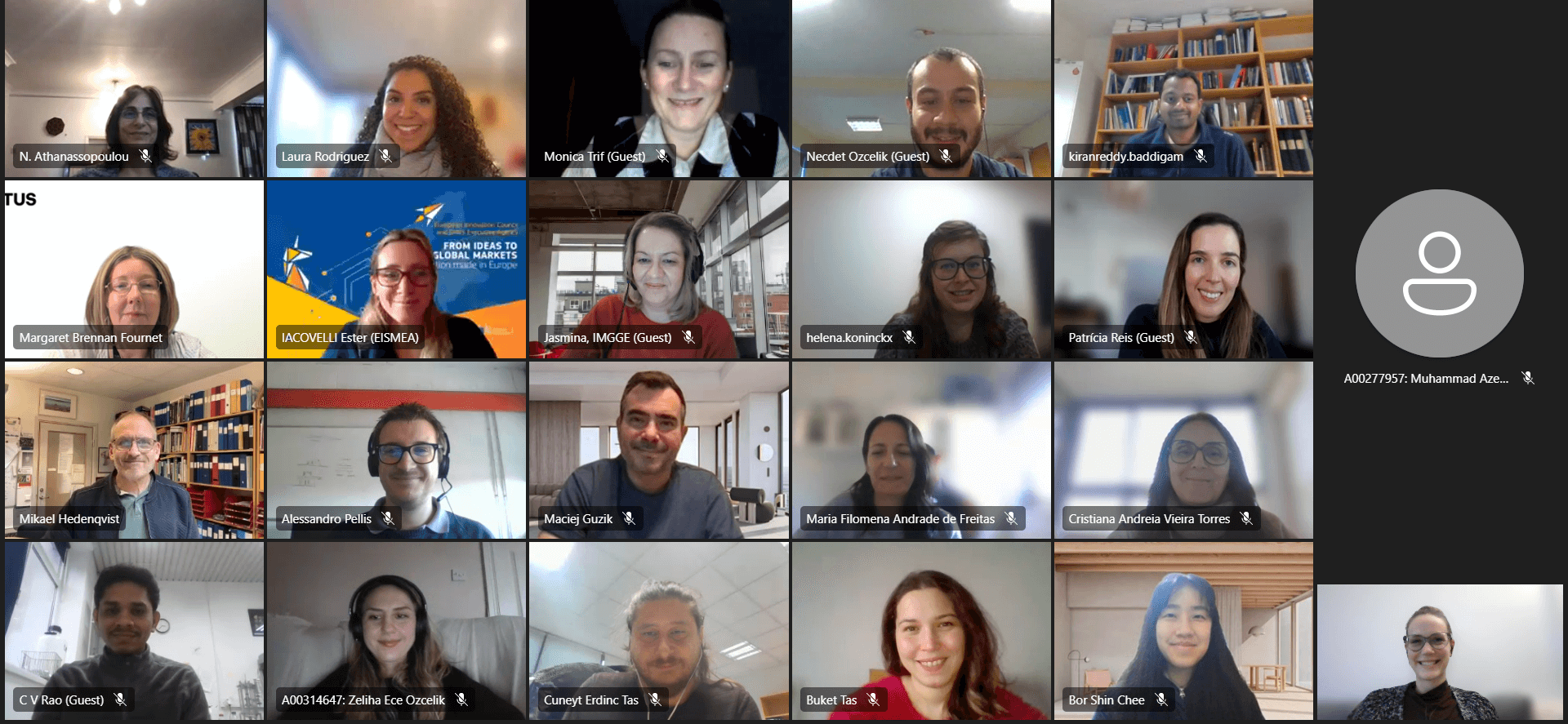EcoPlastiC Year 1 Review Meeting

Feels like a blink of an eye, but the first year of EcoPlastiC is already behind us!
The EcoPlastiC Year 1 Review Meeting with the Project Officer Ester Iacovelli took place on 23 November 2023 online. Scientific experts Dr. Monica Trif, Dr. Maciej Guzik, Dr. Alessandro Pellis and Dr. Nikoletta Athanasopoulou were also present, as they were appointed in advance to examine the Y1 progress and achievements and offer recommendations for future improvement.
The technical overview of the project was given and its approaches towards the low carbon conversion of biopolymers with performance properties equivalent to petroleum counterpart plastics were presented.
The achievements in WP1 (led TUS from Ireland) over the project's Y1 instill confidence in the potential of this project to unfold as an outstanding success, marked by seamless communication among partners.
In the Y1 of WP2 (also led TUS from Ireland), substantial progress was made with regards to PET depolymerization usinf reactive extrursion (REX). Green chemical processes were developed for efficient PET monomer yield and biotechnological clean-up, even from challenging mixed PET streams. The resulting terephthalic acid (TPA) monomers met commercial specifications and reached high yields of up to 99%, setting a promising foundation for future studies on various PET waste feedstock and residual reduction.
In the Y1 of WP3 (led by AVE from Belgium), specific strains, including bacteria from the partners’ collections and new isolates from environments contaminated with plastic waste, showed promising results in generating polyhydroxyalkanoates (PHAs) from TPA monomer and REXed PET. Pseudomonas umsongensis GO1 demonstrated the ability to produce PHA from REXed pre-treated samples without further purification and as a sole carbon source.Enriched microbiomes within activated sludge for biodegrading REX-ed PET were identified, highlighting potential anaerobic degradation and biogas production. These results advance the bioconversion of waste plastic monomers for PHA and other products development.
In WP4 (led by NOVAfrom Portugal), which depends on the developments in WP3, AVE and NOVA will identify optimal process parameters for technical-scale PHA production, with NOVA conducting scale-up trials in 10 L bioreactors and AVE utilizing a 50 L reactor for aerobic PHA production using monomer and multimer streams from mixed plastic waste. The challenge includes optimizing PHA recovery to achieve high efficiency, purity, and molecular properties in an environmentally friendly manner. During Y1, initial experiments on PHA recovery using deep eutectic solvents have begun at IMGGE and mealworms (T. molitor) are explored as a potential recovery system and as a source of novel enzymes for enzymatic PHA recovery.
Within WP5 (led by KTH from Sweden) in Y1, eco-plastic blends potentially useful for food packaging, including PHA, PHB-V, PLA, nanocellulose and blends thereof, were being developed for circularity and improved biodegradability. The use of various additives to enhance the PHA properties in various packaging types was explored. Preliminary product development investigations have shown successful bio-film production. Further research involves the development of thin single cell protein films for testing oxygen and water vapor permeability.
In Y1 in WP6 (led by IMGGE from Serbia), the EcoPlastiC project focused on informing both professionals and the public about all activities and achievements. This communication strategy included an annual update to the DEC plan, a project website and social media, and a detailed report on dissemination and communication progress during the project's Y1. Additionally, a data management plan ensured responsible data handling and long-term preservation, aligning with the project's goal to reduce carbon footprint and promote sustainability. Project Ambassadors were appointed for maintaining internal consortium communication.
All scientific experts and the Project Officer were pleased with the progress of the project, the consortium communication and are looking forward to future results. The experts recommended that future work needs to be addressed towards in the business front of the project and the protection of intellectual property.
Representatives from all partner institutions attended the EcoPlastiC Y1 Review Meeting:
TUS (Ireland) - Margaret Brennan Fournet (Coordinator and Team Leader), Laura Rodriguez, Bor Shin Chee, Cuneyt Erdinct Tas, Buket Alkan Tas, Necdet Ozcelik, Zeliha Ece Ozcelik, Muhammed Azeem
AVE (Belgium) - Helena Koninckx
NOVA (Portugal) - Filomena Freitas (Team Leader), Patricia Reis, Cristiana A. V. Torres
IMGGE (Serbia) - Jasmina Nikodinovic-Runic (Team Leader), Jelena Lazic, Venkateswara Rao Chebrolu
KTH (Sweden) - Mikael Hedenqvist (Team Leader), Kiran Reddy Baddigam
